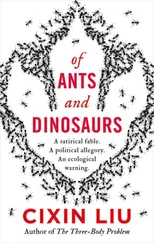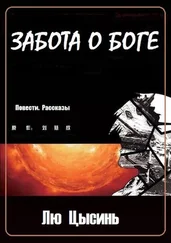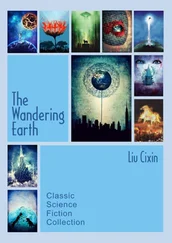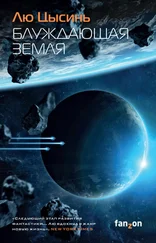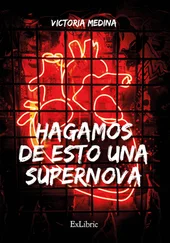The most thrilling and savage of the infantry games were the grenade events, which were also subdivided into fortifications and assault categories. In the former, fortifications were constructed before the game began, with the two sides separated by just twenty meters, the distance a child could throw a grenade. Once the game started, the children popped up from their defense works, made their throws, and then ducked back down again to avoid the incoming ones.
Wooden stick grenades were used most often, since they were relatively powerful and could be thrown relatively far; egg-shaped grenades were far less common. The game required high levels of strength and courage, and a particularly strong nerve.
After the start command, grenades flew like hailstones, and even within the fortifications the rapid pace of the violent explosions could spook your soul out of your body, to say nothing of keeping you from jumping up to counterattack. The integrity of the fortification was the decisive factor. If an enemy grenade managed to pierce or tear away part of the roof, then it was all over. The game had one of the highest casualty rates, and the kids dubbed it “Grenade Volleyball.”
The assault subcategory of grenade games had no fortified positions. Opposing sides faced each other across open ground, when they closed to within throwing distance, commenced throwing. Then they threw themselves to the ground or beat a retreat out of the fragmentation area to protect themselves. This game mostly used egg-shaped grenades, since it was easier to carry more of them. Attacking and evading, the two sides invariably intermingled, and everyone then just chucked their grenades at crowded areas. It was nothing short of a nightmarish scene of madness: dense smoke and fire of explosions on the open ground, crowds of kids running and diving and occasionally pulling a grenade from a bag and tossing it up, smoking grenades tumbling about on the ground…. The children called this game “Grenade Football.”
Artillery games acquired fanciful nicknames as well. The five-kilometer howitzer subcategory, in which parties towed their units into position and finished aiming before receiving the start command, whereupon they commenced firing immediately, was known as “Cannon Boxing.” Artillery games with self-propelled mobile batteries had far more variables and were known as “Cannon Basketball.” Mortars, in which opposing sides were only separated by one or two thousand meters, within line of sight, was a thrilling, physically demanding game the children dubbed “Mortar Soccer.”
* * *
Contrary to their enticing names, the games saw some of the most brutal forms of combat in history. During the battles, weapons exchanged fire more directly than they ever had before, and the casualties they caused topped the ranks of their particular category of combat. For example, in the tank battles, even the winning side saw at least half its tanks destroyed. Blood flowed in rivers by the end of every game in the War Olympics. As for the little soldiers, they prepared for eternity with every sortie.
This led to the later identification of the fundamental misperception the people of the Common Era had where children were concerned. The Supernova War taught people that children placed less value on life than adults, and thus had a much stronger tolerance for death. If necessary, they could be meaner, colder, and crueler than adults. Later historians and psychologists agreed that were this cruel, crazy form of war set in the Common Era, the unimaginable psychological pressures produced would have pushed all participants into a collective mental breakdown.
True, no small number of children fled on the brink of battle, but mental breakdowns were rare. Later generations were in awe of the grit they displayed on the battlefield, particularly in the baffling heroics of heroes who emerged during battle. During the grenade games, for example, there were children known as “pitchbacks,” who never used their own grenades but picked up the ones thrown by the enemy and tossed them back. Although few managed to survive the games, it still was an honor to be a pitchback. They were described in a popular fighting song:
Oh what a joy to be a pitchback, one as great as me!
I’ve got a craze for hand grenades, and I pick up all I see.
As quick as a lick I snatch them up when they’re smoking in the muck,
Like Ali Baba in the treasure cave,
But I’m… not… gonna… get… stuck!
Out of all the games of the War Olympics, cold-weapons events had to be counted among the most barbaric and terrifying. In these games, the opposing sides battled each other with bayonets and other bladed weapons, returning warfare to its most primitive form. Below is an account of one young soldier who took part in an event:
I found a nearby rock and honed my rifle’s bayonet one last time. The squad leader saw me sharpening it yesterday and I got an earful. He said bayonets were not to be sharpened, since it would damage their rustproofing. I didn’t care, and kept on grinding. This rifle never seems to have a sharp enough bayonet. And I wasn’t expecting to survive the game anyway, so why the hell did I need rustproofing?
The kids on the jury inspected our guns one by one to make sure they weren’t loaded. And they took away the bolt, and they body-searched me for pistols or other hot weapons. All five hundred Chinese kids were searched, but the judges didn’t find anything, since each of us had buried a grenade in the snow at our feet before they came to inspect. Once they left, we dug them up and tucked them into our clothing. We weren’t trying to break the rules; it’s just that the previous night a Japanese captain came to us in secret and told us that he belonged to an antiwar group, and that the Japanese kids were planning to use a scary weapon in the cold-weapons games. We asked him what it was, but he wouldn’t say. He only said it was a weapon that we’d never guess. An extremely terrifying one. He told us to be on guard.
When the game began, infantry formations on both sides started advancing toward each other. A thousand bayonets glinted like ice under the shifting southern lights, and I can clearly remember the howl of the wind that drove over the unmelted snow, like it was singing some desolate war song.
I was in the back of our formation, but since I was at the edge I had a pretty good view of up front, and I saw the Japanese kids gradually getting closer. They weren’t wearing steel helmets, but had tied on white cloth headbands, and they sang as they walked. I saw the bayonet-fixed rifles in their hands, but didn’t see the fearsome weapon the Japanese captain had mentioned the previous night. Suddenly, the enemy formation changed shape, thinning out into columns spaced around two paces apart, creating parallel passageways through their formation. Then I saw clouds of snow and dust rising behind them, and coming through the clouds a horde of black objects surging through the formation like a flood. I heard deep whines, and when I got a better look, my blood curdled.
It was a huge pack of army dogs.
The dogs charged past the enemy formation and in the blink of an eye had reached our own. Up ahead the front half of our formation was in disarray, and I heard pitiful screams. I couldn’t tell the dogs’ breed, but they were huge, standing a head taller than me, and mean as hell. The tussle between kids and dogs up front stained the ground with fresh blood. I saw one dog leap up with a torn-off arm in its jaws…. The Japanese kids were closing in and fell out of formation and swarmed toward us, bayonets leveled, joining the dogs in their attack on the Chinese kids. Most of my comrades up front were already beaten to a pulp by the teeth and blades.
Читать дальше
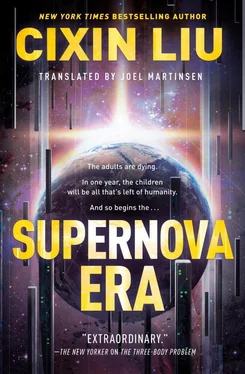
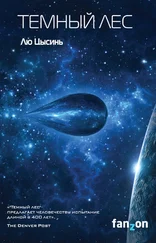
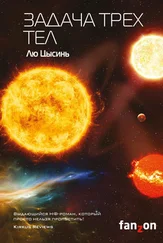
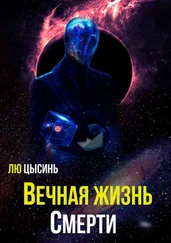
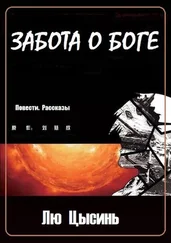
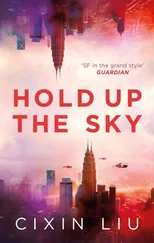
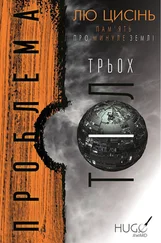
![Лю Цысинь - Эпоха сверхновой [litres]](/books/393110/lyu-cysin-epoha-sverhnovoj-litres-thumb.webp)
